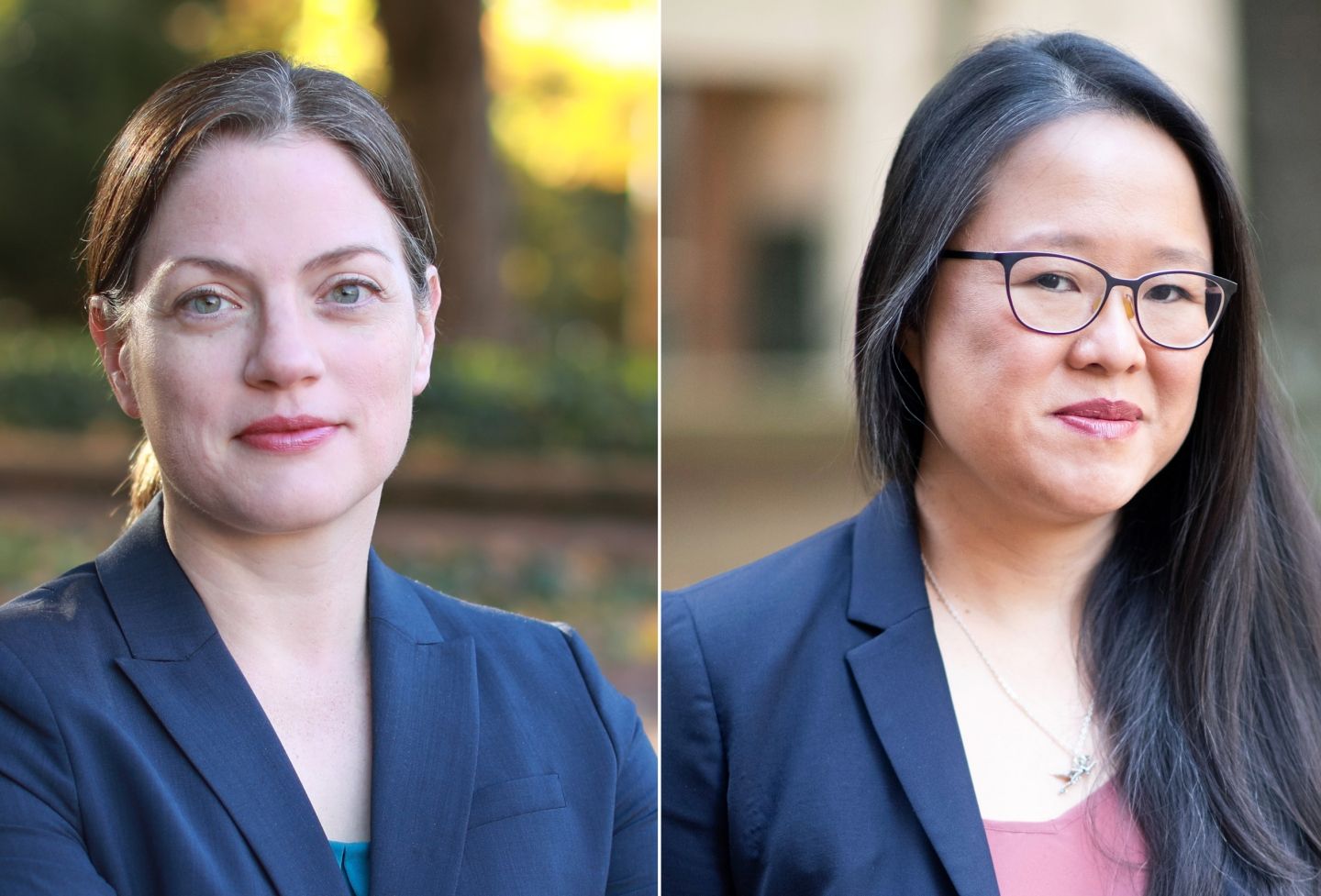When Professor Cathy Hwang joined the faculty at the University of Virginia School of Law, the former mergers and acquisitions attorney was asked whether she would prefer to teach the specialized corporate law class geared toward aspiring corporate lawyers or the class geared toward the school’s generalists.
“I elected to teach the general section because I think business law should be for everybody and everyone should take business law,” Hwang said. “Business law is everywhere, but you don’t see it until someone shows it to you.”
Hwang’s goal with teaching — and with her new textbook, “Business Associations: A Modern Approach,” available Sept. 18 — is to make corporate law visible, accessible and relevant to all.
She curated the book with her co-author, George Mason University law professor Paolo Saguato, over the course of three years. A cadre of research assistants helped find the perfect cases to appeal to today’s students.
“We asked them to find cases that state the law clearly and that excite you, that you think are interesting,” Hwang said. “They would send us briefs with 12 summaries of cases that define, say, agency. Our leading case, for example, is about agency in the context of fair housing.”
Other cases tackle corporate concepts through cases involving music licensing deals, migrant workers, bungee-jumping and skiing accidents, diverse parties, Twitter owners, Jay-Z and shareholder suits to force corporate social responsibility.
“Many of our students are Gen Z students who chose to attend law school to make a difference,” Hwang said. “These cases will help them see how business and business law impact every aspect of modern life, and how an understanding of this material will help them achieve their goals and advocate for their clients.”
The fresh cases support rather than supplant the traditional Revlon and Caremark-type cases. “We have all the ‘greatest hits’ in there,” Hwang said. “Students are still going to be able to graduate and when their [firm] partner asks if they’ve read Smith v. van Gorkom, they’re going to be able to say ‘Yes.’”
As she does in the classroom, Hwang takes a hands-on, student-centered approach to teaching the book materials, based on pedagogical research about what makes learning “stick.” At times, that means turning certain lessons into games or role-playing exercises, while the teacher’s manual provides laugh-lines and Socratic questions for professors who are newer to the material.
“That’s something Paolo and I desperately wanted as new professors,” Hwang said.
Both Hwang and Saguato also wanted to empower students to engage more deeply with the subject on their own. One way they’ve done that is by using real cases as inspiration for the end-of-chapter review questions and giving students citations to the cases.
“The answers are usually in the teacher’s manual. So if your professor doesn’t go over the problems, you don’t know what the answers are,” Hwang said. “Most of our problems in the book are based on real cases and at the end of the problem, there’s a footnote so you can just go look up the answer.”
Both Hwang and Saguato have earned accolades for their writing and teaching prowess. Four of Hwang’s articles have been voted among the top 10 corporate and securities law articles of the year by fellow business law professors, and she has won two major teaching awards since she began teaching in 2016, including the University of Utah’s highest teaching award for early career faculty.
Saguato began his academic career as a fellow at New York University School of Law. Before immigrating to the United States in 2016, he served as a fellow at the London School of Economics and Political Science, where he won the LSE Class Teacher Award. He has been shortlisted every year for George Mason University’s highest teaching award.
Hwang received her J.D. from the University of Chicago Law School and her B.A. in economics and international relations from Pomona College.
Saguato received his LL.M. from Yale Law School as a Fulbright Scholar and his Ph.D., J.D. and LL.B. from the University of Genoa in Italy.
Founded in 1819, the University of Virginia School of Law is the second-oldest continuously operating law school in the nation. Consistently ranked among the top law schools, Virginia is a world-renowned training ground for distinguished lawyers and public servants, instilling in them a commitment to leadership, integrity and community service.


